How Many Meta Keywords Should I Use for SEO?
Today, the focus has shifted towards more meaningful and impactful SEO practices that genuinely enhance content visibility and engagement.


How Many Meta Keywords Should I Use for SEO?
Debunking the Myth of Meta Keywords in SEO
Understanding the Evolution of Meta Keywords
The practice of using meta keywords has seen a drastic transformation over the years. Once a vital aspect of search engine optimization (SEO), these HTML tags have been largely deprecated by major search engines due to past abuses and the evolution of more sophisticated ranking algorithms. Today, the focus has shifted towards more meaningful and impactful SEO practices that genuinely enhance content visibility and engagement.
What Are Meta Keywords and Their Historical Context?
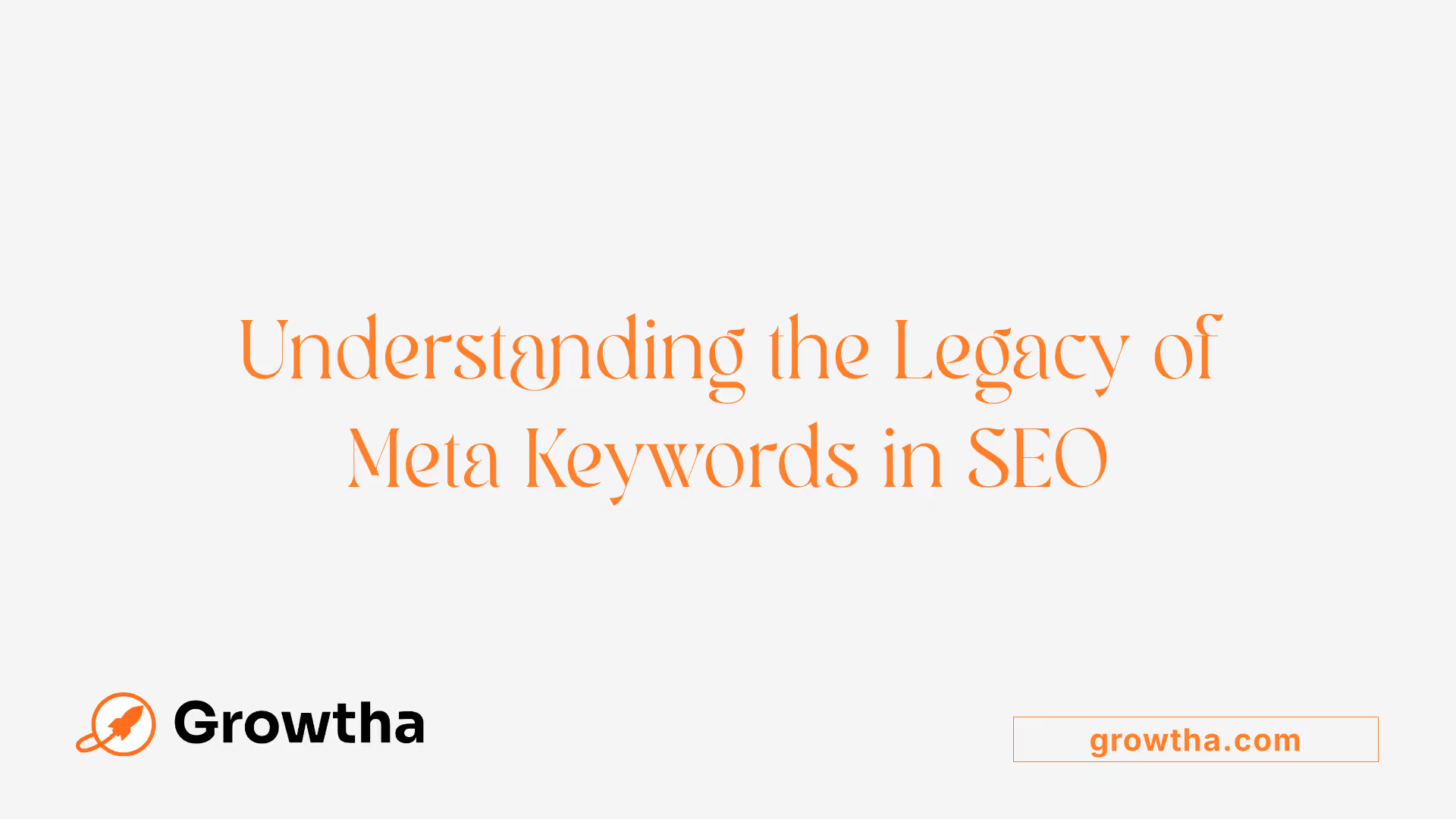
Definition and purpose of meta keywords
Meta Keywords are HTML tags that serve to inform search engines about the topics covered on a webpage. Traditionally, these tags were intended to enhance a site's visibility by specifying a list of relevant keywords, thereby guiding search engines in determining the content focus. However, their influence in search engine optimization has waned significantly, particularly since Google publicly declared in 2009 that it no longer utilizes the keywords meta tag as a ranking factor. This decision stemmed from widespread abuses, notably keyword stuffing, which undermined the integrity of search results. Despite their devaluation by major search engines like Google, Yahoo, and Bing—who all have effectively relegated meta keywords to historical footnotes—some platforms like Yandex and Baidu may afford them minimal recognition still.
Historical significance in SEO
Historically, meta keywords were quite impactful during the internet’s formative years in the 1990s and early 2000s, allowing webmasters to signal what queries their pages should rank for. This practice provided a sort of strategy for those looking to optimize their websites; for instance, a dental clinic could list keywords such as 'dental care', 'dentist in Texas', etc. However, by the late 2000s, excessive exploitation of this feature prompted search engines to shift their focus towards more substantive indicators of content quality and relevance. Today, effective SEO strategy centers on high-quality content and user engagement, relegating meta keywords to a legacy status in the landscape of online marketing.
Current Relevance of Meta Keywords in SEO
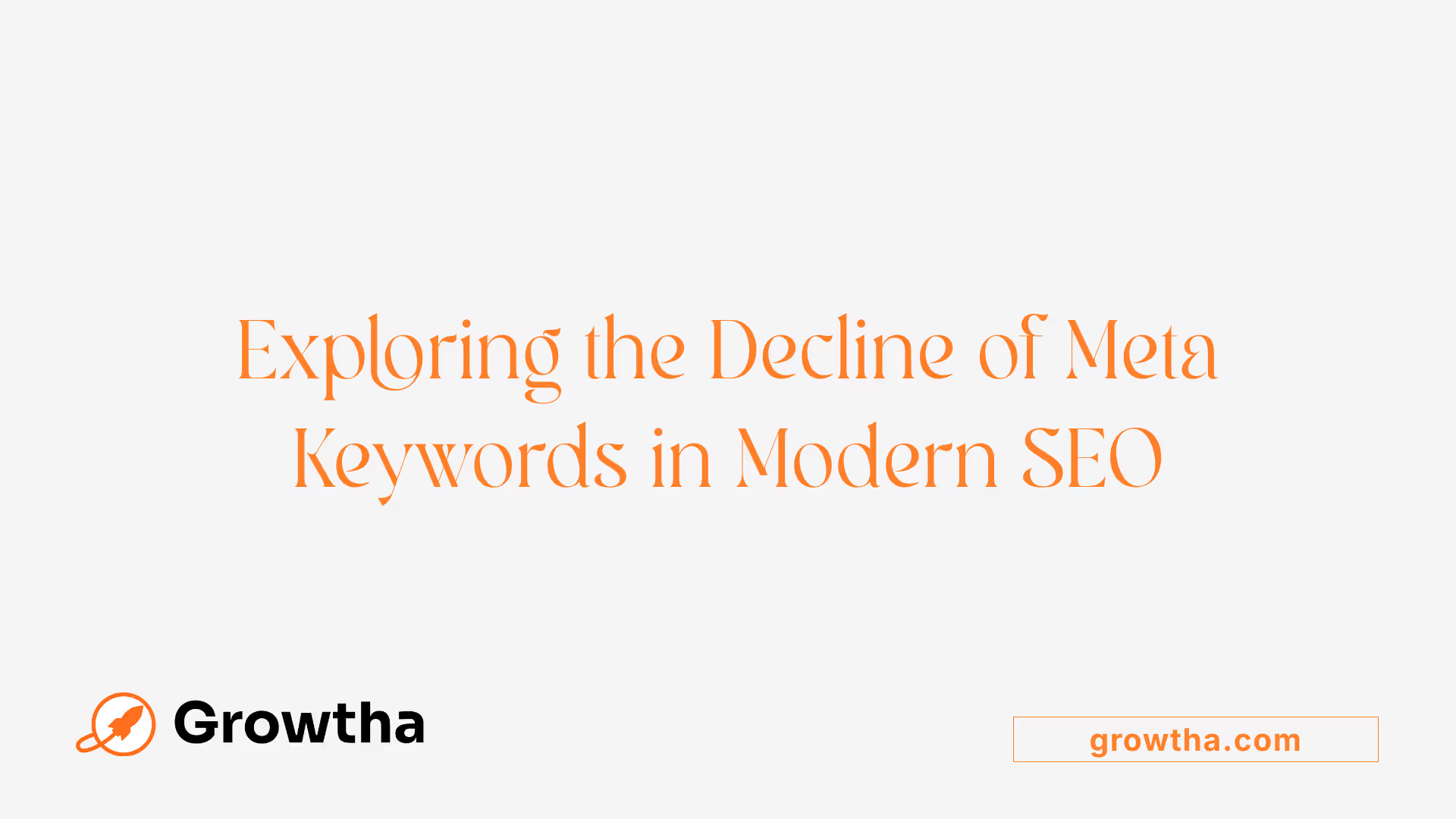
Are meta keywords important for SEO?
Meta keywords are largely considered obsolete and have no importance for SEO today. Major search engines, including Google, Bing, and Yahoo, have explicitly stated that they do not use the meta keywords tag in their ranking algorithms. This policy stems from the history of abuse and keyword stuffing associated with meta keywords, which has rendered them unreliable as a metric for assessing page relevance. In 2009, Google confirmed that the keywords meta tag does not influence search rankings, a position reaffirmed by industry experts and Google's John Mueller in 2023. Instead of focusing on meta keywords, SEO professionals recommend optimizing title tags, meta descriptions, and other relevant on-page elements that genuinely impact search rankings. This shift reflects a broader emphasis on content quality and user engagement over outdated practices. Ultimately, the consensus among experts is that meta keywords should not be utilized in modern SEO practices.
Crafting Effective Meta Descriptions
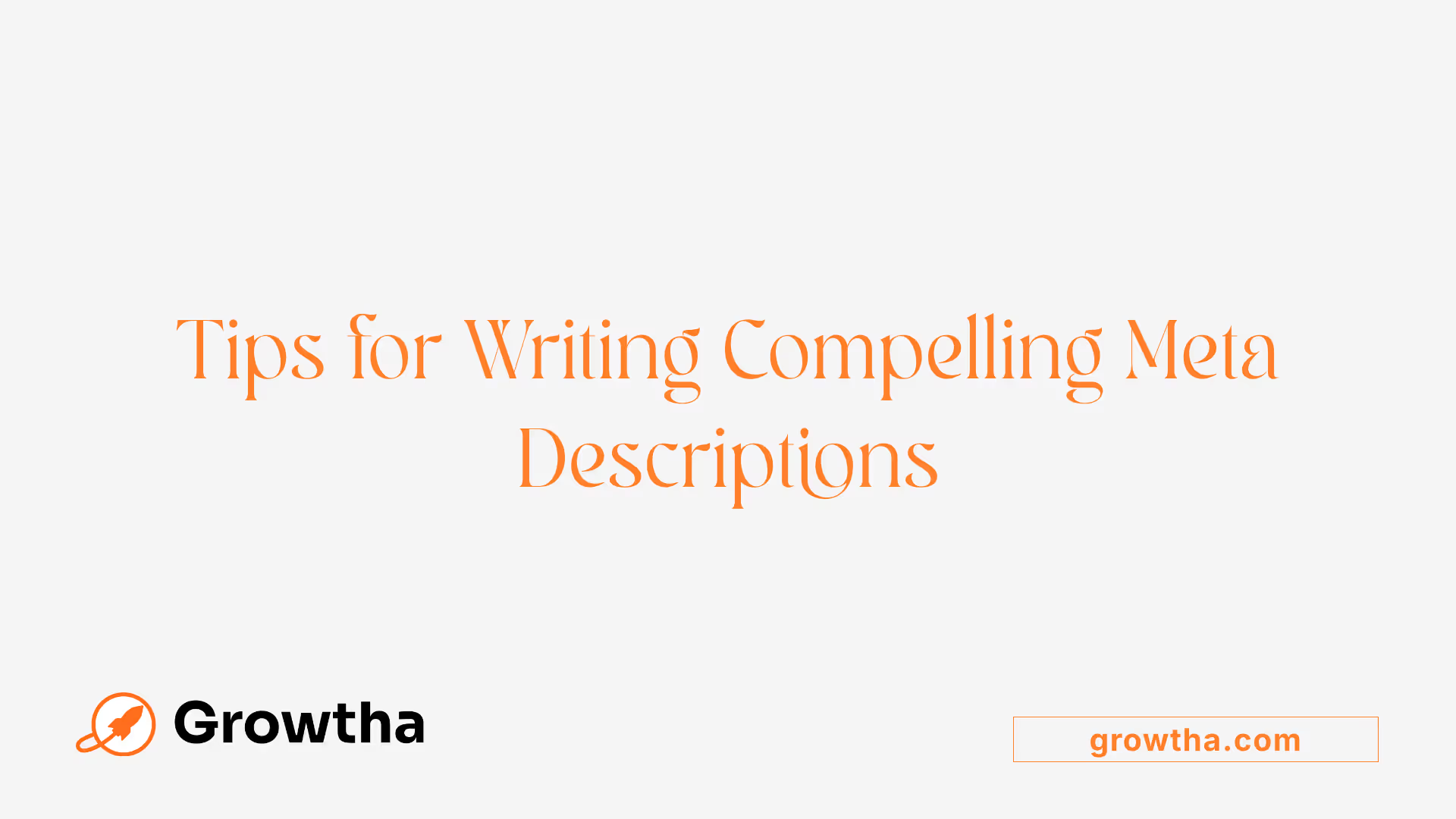
Writing Tips for Meta Descriptions
To write a good meta description for SEO, focus on crafting a human-readable summary that accurately reflects the page's content. Each description should be unique and incorporate relevant keywords without being merely a string of them. It is essential to make your descriptions specific and enticing to draw users in and encourage clicks. Adhering to a 160-character limit is advisable to ensure your meta descriptions display fully in search engine results. Although they enhance user engagement, remember that meta descriptions do not directly impact rankings; Google may replace them with on-page content if it deems those snippets more representative of the page.
Impact of Meta Descriptions on Click-Through Rates
Meta descriptions significantly impact click-through rates (CTR) by providing potential visitors with a preview of what to expect on the page. A well-crafted meta description can compel users to engage with your content over competitors, leading to increased traffic. Structured data can further enhance snippets, making them more visually appealing in search results and even providing additional context. As a result, while meta descriptions may not serve as a direct ranking factor, their role in improving CTR and driving user engagement should not be underestimated.
Best Practice Description Impact Use Core Keywords Incorporate relevant keywords naturally into the description. Improves relevance for search queries. Character Limit Keep it under 160 characters for full display in SERPs. Ensures visibility without truncation. Unique Descriptions Craft a unique meta description for each page. Avoids confusion and enhances click potential.
Best Practices for Optimizing Meta Tags
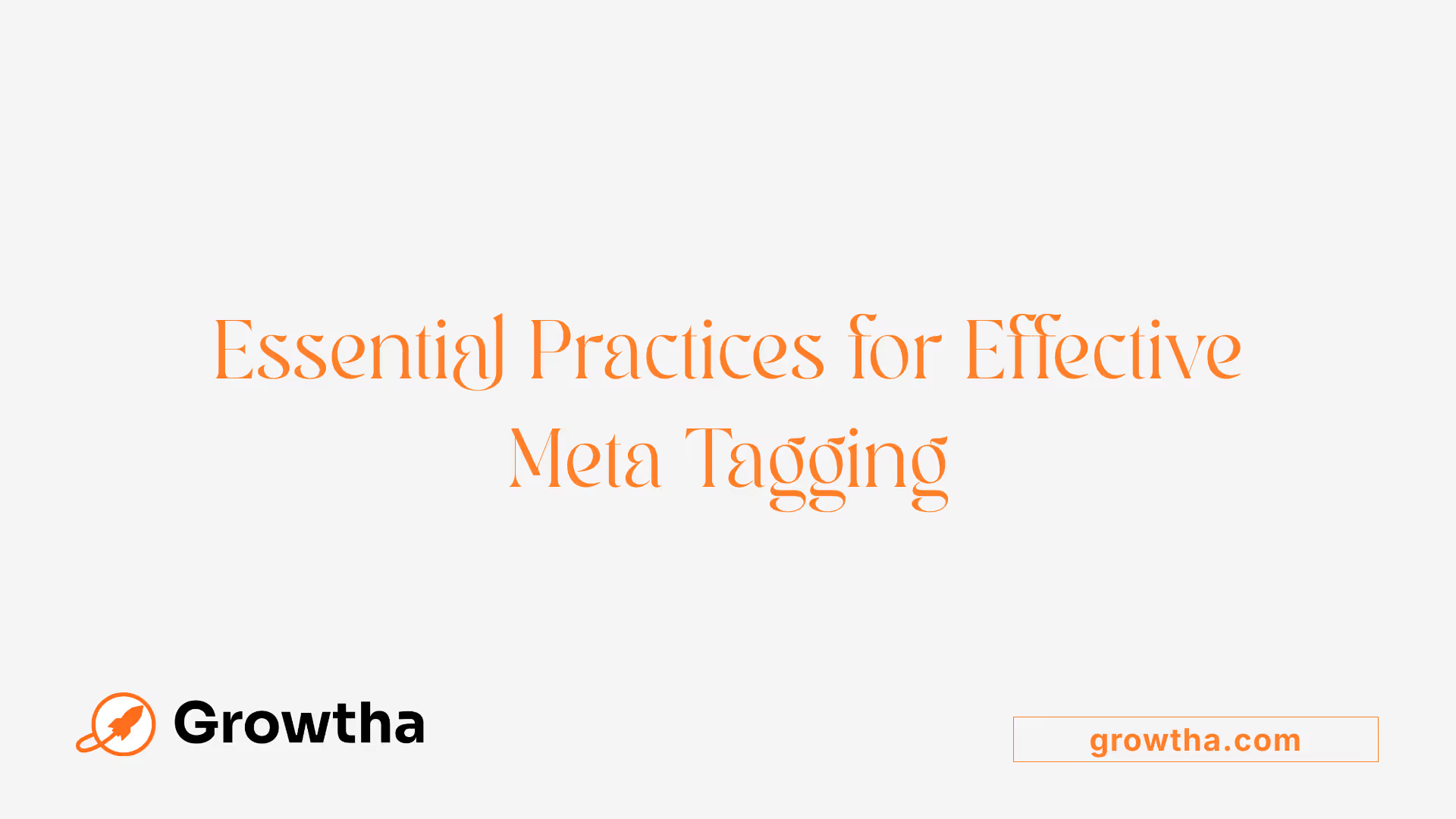
What are the best practices for writing meta tags for SEO?
To write effective meta tags for SEO, it's crucial to utilize the title tag and meta description correctly. The title tag should be unique, concise, and ideally under 60 characters, clearly reflecting the page's content to improve its visibility. Concurrently, meta descriptions should not exceed 156 characters; they must include primary keywords and provide a compelling overview of what the page offers, garnished with a call to action to improve click-through rates from search results.Moreover, incorporating meta tags like the robots tag can be beneficial, allowing you to control the indexing of the page. Canonical tags also play a critical role in managing duplicate content, ensuring that search engines prioritize the correct version of your page. Overall, well-crafted meta tags enhance search engine understanding of your content, which is essential for boosting rankings and enriching user experience.
Importance of different meta tags
Among various meta tags, the title tag remains paramount; it shapes users' first impressions and drives click-through rates from search results. Additionally, meta descriptions serve as brief summaries that encapsulate the page's essence and can significantly affect user engagement, despite not directly influencing rankings. Search engines use these meta tags to analyze and rank content, underscoring the need for strategic optimization in today’s SEO landscape.Furthermore, heading tags (H1-H6) help restructure content, promoting both user readability and semantic relevance, thus impacting how search engines index and engage with your site.
An overview of essential meta tags, their purpose, and optimization guidelines can be summarized in the following table:
Differences Between Meta Keywords and Meta Descriptions
What is the difference between meta keywords and meta descriptions?
Meta keywords and meta descriptions serve different purposes in the context of SEO. Meta keywords, which were once used to indicate the content of a webpage, have become largely obsolete due to misuse and are no longer considered by major search engines like Google. In contrast, meta descriptions act as a brief summary of a page's content and are displayed in search results to encourage user clicks. While meta keywords do not contribute to SEO rankings anymore, effective meta descriptions can significantly improve click-through rates. Modern SEO emphasizes the importance of quality content and user intent, making meta descriptions and other tags like title tags far more relevant than outdated meta keywords.
Aspect Meta Keywords Meta Descriptions Purpose Specify keywords relevant to the content. Summarize page content for users, shown in search results. Relevance in SEO No longer influential in rankings due to past misuse. Can improve click-through rates by compelling summaries. Search Engine Consideration Ignored by Google, Yahoo, Bing; low weight in Yandex and Baidu. Widely utilized by search engines for snippets in SERPs.
The Essential Meta Tags for Effective SEO
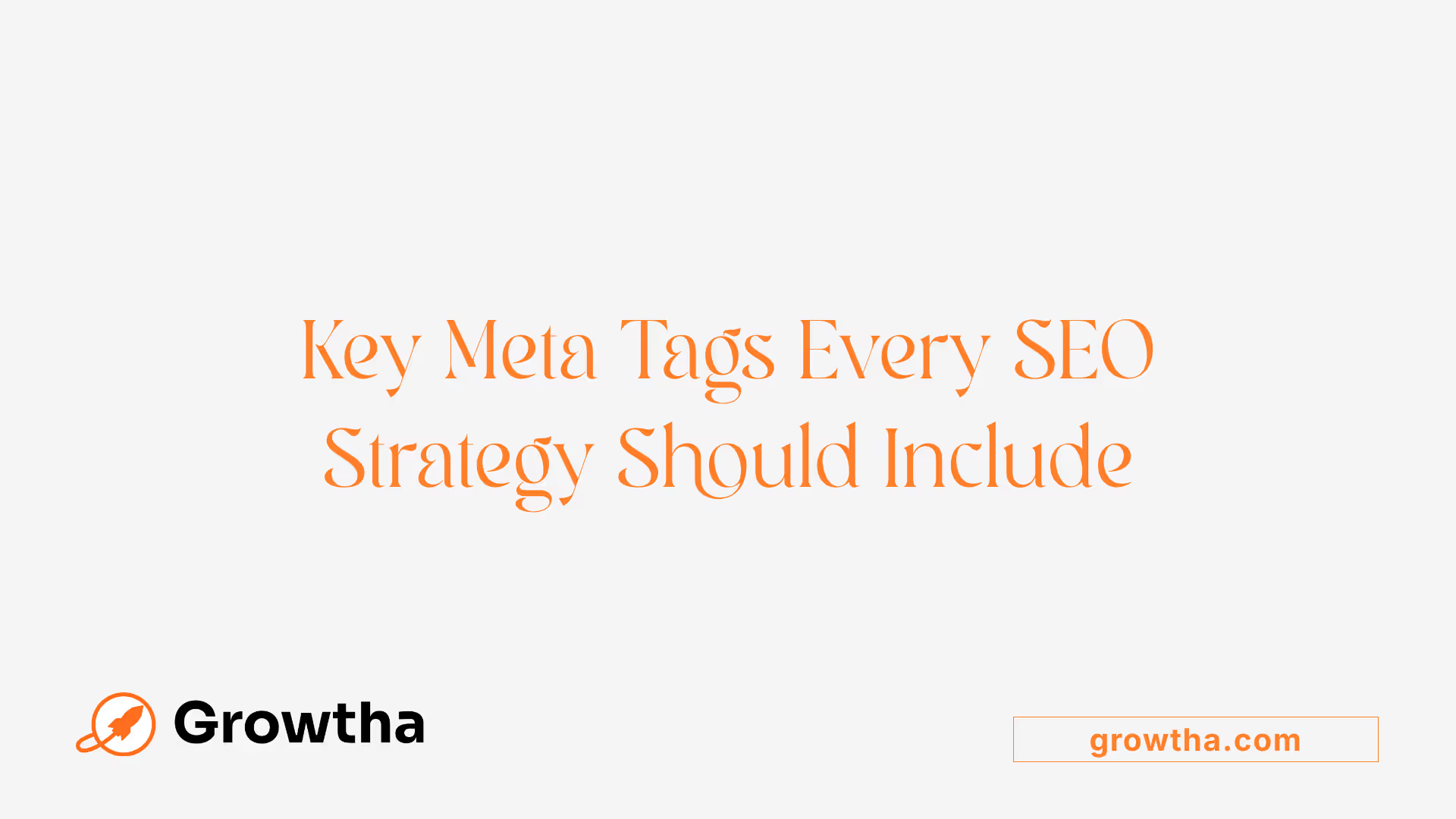
In the ever-evolving landscape of search engine optimization (SEO), the essential meta tags have become critical for driving visibility and engagement. This includes not just the meta keywords, which have widely lost their relevance, but rather more impactful elements like the meta title and meta description. These tags serve as principal tools for search engines to interpret the content of a webpage and inform users about its relevance to their queries.
What are the most important meta tags for SEO?
The most important meta tags for SEO include the meta title, meta description, meta robots, meta viewport, meta charset, and meta refresh redirect. The meta title is crucial since it appears as the clickable headline in search results, necessitating that it be unique, character concise (ideally under 60 characters), and keyword-rich to attract clicks. Conversely, the meta description acts as a succinct summary of the page’s content and although it does not directly affect rankings, a compelling description, limited to around 160 characters, significantly influences click-through rates. Besides these, the meta robots tag is essential for directing search engines on whether to index a page or follow its links, while the meta viewport ensures that the content is mobile-friendly, thus impacting rankings in mobile searches. Moreover, the meta charset specifies the character encoding, with UTF-8 recommended for proper text display across different devices.
These meta tags form the cornerstone of effective SEO strategies, steering both search engines and users toward your content, ultimately aiding in achieving better rankings and wider audience reach.
Embracing Modern SEO Practices
The role of meta keywords in SEO has effectively diminished in the wake of advancements in search engine technology and increased emphasis on content quality. While these tags once played a significant role in signaling page relevance to search engines, their influence today is negligible. Therefore, it's crucial to focus on optimizing meta descriptions, title tags, and other elements that are impactful in search rankings. By adapting to these contemporary SEO practices, businesses can ensure their digital content remains competitive and visible, aligning with both search engine algorithms and user expectations.
References
- What Are Meta Keywords and Should I Use Them? - SEO.com
- Meta Keywords: What Are They & Should You Use Them for SEO?
- Meta Keywords: What They Are and How They Work - WordStream
- Meta Keywords Tag [SEO] : definition, integration and best practice
- Meta Keywords (and why you shouldn't use them in 2021!) - Ryte
- Meta Tags and Attributes that Google Supports | Documentation
- Meta Keywords: Are They Still Relevant for SEO? - Surfer SEO
- Is The Meta Keywords Tag A Ranking Factor? - Search Engine Journal
- What Are Meta Keywords and Should I Still Use Them? - WebFX
- Meta Keywords: What Are They and Should You Use Them? - Ahrefs







